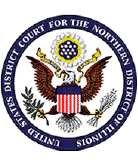Chicago DUI Lawyer
Skilled Attorney Defending Those With DUI Charges in Chicago
Driving under the influence of alcohol or drugs, which is commonly referred to as DUI, is a serious criminal offense throughout the United States, and Chicago is no exception. A DUI conviction can have life-altering consequences, and you could face jail time, hefty fines, mandatory alcohol treatment, probation, and the loss of your driver's license. If you are facing charges for drunk driving in Illinois, it is important to understand your options for defense. An experienced criminal defense attorney can help you determine how to resolve your case successfully and avoid penalties such as the suspension or revocation of your driver's license.
With extensive experience defending clients accused of DUI offenses in Chicago and Cook County, the Law Offices of James F. DiQuattro can provide invaluable legal help in these situations. Our skilled attorney will help you understand the options that are available to you and the defense strategies you can use to avoid a conviction. We will work to protect your freedom and ensure that your rights are upheld throughout the legal process.
DUI Charges in Illinois
While most people associate DUI with alcohol use, there are a variety of reasons why a person may be pulled over by police and arrested on suspicion of intoxicated driving. Under Illinois law, there are specific limits for how much alcohol or marijuana a person can have in their system while driving. A blood alcohol content (BAC) of .08 percent or more will cause a person to be considered to be intoxicated. The legal limit for marijuana is 5 nanograms of THC in a milliliter of blood or 10 nanograms in a milliliter of saliva, urine, or other bodily fluids. However, other drugs or medications may also lead to intoxication, and a person may be charged with DUI if they were under the influence of any substance that impaired their ability to operate a motor vehicle safely.
DUI Arrests
DUI cases will typically involve a police officer performing a traffic stop because they noticed that a person was driving erratically or because a driver committed a traffic violation. If the officer thinks that the driver has been drinking alcohol or is under the influence of any other substances, they may ask the driver to blow into a breathalyzer device or exit their car and undergo field sobriety tests. The purpose of these tests is to give an officer a better idea of whether a person is likely to be intoxicated, and they may establish probable cause to perform an arrest.
Sobriety tests performed during a traffic stop are not required by law in most situations, although a driver may face penalties if they refuse to take field sobriety tests when an officer suspects that the driver is under the influence of marijuana. Portable breathalyzer tests and field sobriety tests can generally be refused. This will not prevent an officer from performing an arrest, but it may limit the types of evidence that could be used against a person in a DUI case.
When a person is arrested on suspicion of DUI, they will be taken to a police station, and officers will ask them to undergo one or more chemical tests to determine if they were intoxicated while they were driving. These tests may include a breathalyzer, a blood draw, or a urine sample. Under Illinois' implied consent laws, drivers who are arrested for DUI are required to submit to chemical testing. If a person refuses to take a chemical test, they will face an automatic driver's license suspension for one year for a first offense or three years for a second offense. A failed chemical test showing that a driver was intoxicated will also result in an automatic license suspension, but this will be for a shorter period: six months for a first offense or one year for a second offense. Notably, these automatic license suspensions will go into effect regardless of whether a person is ever prosecuted for DUI or convicted on criminal charges.
Criminal DUI Charges
A failed chemical test or a refusal to submit to testing will usually result in prosecution on DUI charges. Most of the time, a first-time DUI will be charged as a Class A misdemeanor. A driver who is convicted may face a jail sentence of up to one year, and they may be required to pay up to $2,500 in fines, as well as other fees and court costs. Their driver's license will be revoked for one year, and their vehicle registration will be suspended. In many cases, a driver will qualify for a Monitoring Device Driving Permit, and they will be able to continue driving during their period of suspension or revocation after they install an ignition interlock device (IID) in any car they will be driving.
A second DUI conviction will be more serious, and some of the options for relief that applied in a first-time DUI case will not be available. In addition to the penalties for a Class A misdemeanor conviction, a person will be required to serve a minimum sentence of five days in prison or 240 hours of community service, and their driver's license will be revoked for five years. In some cases, a driver may qualify for a restricted driving permit (RDP) based on hardship, and they may be able to drive for limited purposes during the period of revocation, such as to go to work or attend school.
Third or subsequent DUI convictions are classified as aggravated DUIs and prosecuted as felonies. Aggravating factors may also apply in first or second DUI cases, and issues such as having a child passenger in a vehicle or causing an accident that resulted in injury or death may result in felony charges. The penalties will be much more severe in these situations.
Contact Our Cook County DUI Defense Lawyer
Whether you have been charged with a first-time DUI or are facing more serious DUI charges, the Law Offices of James F. DiQuattro can provide you with the representation you need. We will advise you on whether you can challenge the evidence against you or whether it may be possible to avoid a conviction by receiving treatment for alcohol or drug abuse. We will advise you on the best steps you can take to minimize the consequences that may affect your daily life, your career, your ability to drive, and your freedom. Contact our firm at 312-627-9482 to arrange a free consultation and learn more about how we can help with your case.
















